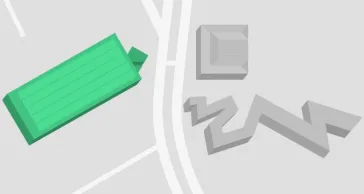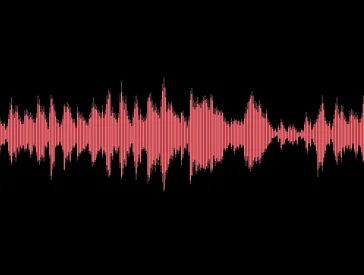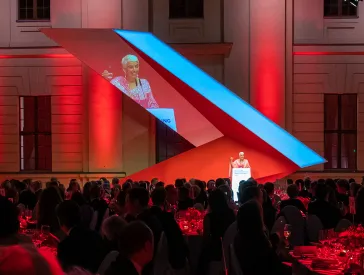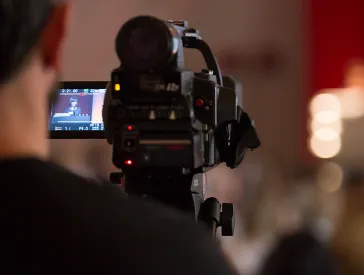Reconciliation with Evil: Story of a Survival
Book Presentation with Leon Weintraub (video recording available, in German)
Leon Weintraub, a Shoah surviver and a donor to the Jewish Museum Berlin’s Archive, campaigns against collective amnesia as an eyewitness to history, giving talks at schools and memorials. In 2022, he published his life’s memories in German Die Versöhnung mit dem Bösen: Geschichte eines Weiterlebens (Reconciliation with Evil: Story of a Survival) with Wallstein Verlag.
Leon Weintraub was born in the Polish city of Łódź in 1926. Starting in 1940, his family was forced by the Nazis to live in the Litzmannstadt Ghetto and to perform forced labor. When the ghetto was liquidated in 1944, the detainees were deported to the Auschwitz-Birkenau concentration camp, where they were murdered.
recording available

Where
W. M. Blumenthal Academy,
Klaus Mangold Auditorium
Fromet-und-Moses-Mendelssohn-Platz 1, 10969 Berlin
(Opposite the Museum)
Video recording from 27 Okt 2022, in German; Jewish Museum Berlin; Thumbnail: Leon Weintraub
Weintraub, however, pretended to be an Arbeitshäftling, a working prisoner, and thus escaped being killed. During the turmoil of the war’s final months, he survived several brutal campaigns to transfer prisoners before he finally managed to escape from one of the transports. Much of his family did not survive the Shoah.
For his memoirs, Leon Weintraub told the journalist Magda Jaros about his childhood and the postwar period, his studies of medicine in Göttingen, his career in Poland, and his emigration to Sweden in response to the antisemitic March Riots of 1968. In conversation with editor Jan Philipp Bothe, he presents the book at the Jewish Museum Berlin.
In cooperation with Wallstein Verlag
Leon Weintraub and the cover of the book Die Versöhnung mit dem Bösen; photo: Malgorzata Musielak, Wallstein Verlag


